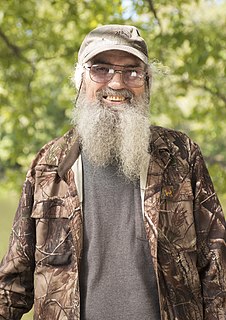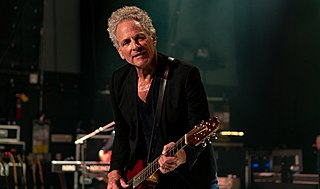A Quote by Michael Ondaatje
Before the real city could be seen it had to be imagined, the way rumours and tall tales were a kind of charting.
Related Quotes
Legends of the Silver Stallion had been told for years now, whenever mountain stockmen met round the campfires or on the winding hill tracks. Songs were sung about him to the cattle and both songs and tales had become even stranger since his supposed death when he vanished through the wind and the night over a great cliff. Tales kept cropping up of a ghost horse seen, or imagined, roaming over the mountains at night, of stockmen waking in a hut at midnight, hearing the tremendous stallion’s cry which could only be Thowra’s
People say, "Look, your book [Tales and Wisdom from Duck Dynasty's Favorite Uncle] is about tall tales." And I said, "No, you don't understand, OK? The book is tall tales, OK, by me. But look, those tall tales are my life, OK? And look, I added some spices in there. That's the five percent. You know the one about the wolves chasing me? The only thing about that - they wasn't wolves, they was coyotes".
The sophists were as a rule men who had traveled widely and seen different forms of government. Both conventions and local laws in the city-states could vary widely. This led the Sophists to raise the question of what was natural and what was socially induced. By doing this, they paved the way for social criticism in the city-state of Athens.
Because it's kind of great, being an idea that everybody likes. But I could never be the idea to myself, not all the way. And Agloe is a place where a paper creation became real. A dot on the map became a real place, more real than the people who created the dot could never have imagined. I thought maybe the paper cutout of a girl could start becoming real here also. And it seemed like a way to tell that paper girl who cared about popularity and clothes and everything else: 'You are going to the paper towns. And you are never coming back.
I landed on Gay Pride and I couldn't believe my eyes! Not only were gay people real - I had only heard rumours - but they had parades. There were men covered in glitter bound together with furry handcuffs. I felt like I was in outer space, I honestly thought I had arrived at the happiest place on earth.
I've spoken of the shining city all my political life, but I don't know if I ever quite communicated what I saw when I said it. But in my mind it was a tall, proud city built on rocks stronger than oceans, windswept, God-blessed, and teeming with people of all kinds living in harmony and peace; a city with free ports that hummed with commerce and creativity. And if there had to be city walls, the walls had doors and the doors were open to anyone with the will and heart to get there. That's how I saw it, and see it still.
When I met Elvis, we didn't really have a conversation. I was introduced by my uncle, and he sort of grunted my way. What stays with me is the whole scene. I had never seen a real mob scene before. I was really young and impressionable. Elvis really did look - he looked sort of not real, as if he were glowing.
People have always told tales. Long before humanity learned to write and gradually became literate, everybody told tales to everybody else and everybody listened to everybody else's tales. Before long it became clear that some of the still illiterate storytellers told more and better tales than others, that is, they could make more people believe their lies.







































